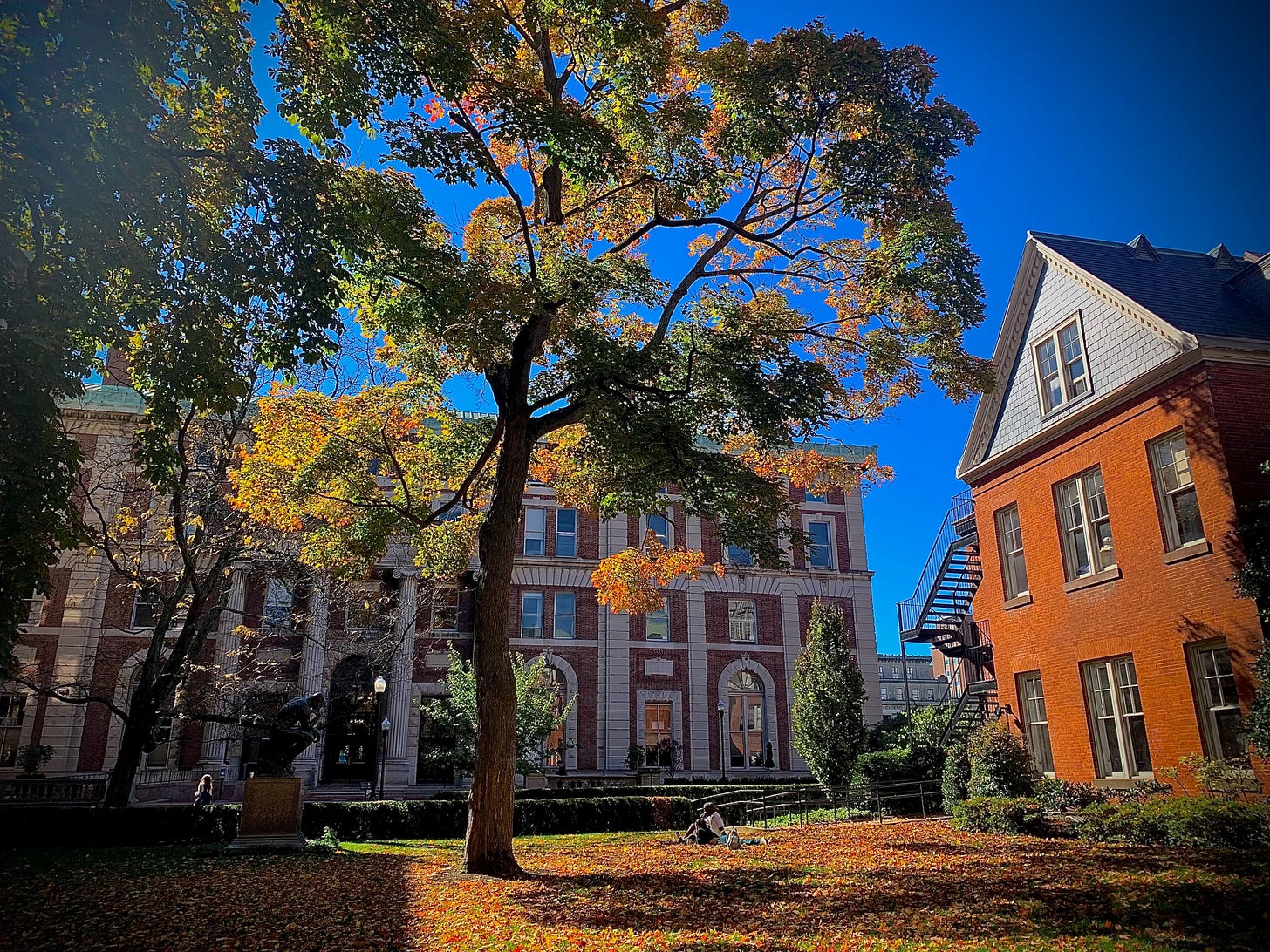Normalcy Emerging
Fall is a time to show that Columbia still has much to offer.
Dear Reader,
In the course of any institution’s history, there are, on occasion, events that become permanently etched into the memory and collective consciousness of that institution, fading never in importance and only in saliency.
I need not tell you what the most recent such events for Columbia are, and many of you may have already tired of any discussion on that topic.
Just as we gradually became numb to the disruption and changes the COVID pandemic brought, the new school year has ushered in a relative sense of peace and quiet. With the changing weather comes changing priorities and concerns for many—for seniors like myself, it might just feel like the most normal year yet.
Yet, we cannot ignore the evolving legacy of those events. At the time of writing, and perhaps still while you read this, the Morningside campus is only open to Columbia ID holders and approved guests. Third-party security contractors monitor and roam campus at all hours. We are still making national headlines and drawing Congressional scrutiny.
One consequence of our history-making: The Wall Street Journal ran a story at the end of September titled, “Sorry, Harvard. Everyone Wants to Go to College in the South Now.” The reason? “Many teens are eager to trade the political polarization ripping apart campuses in New England and New York for the sense of community epitomized by the South’s football Saturdays.” Plus, lower tuition and warmer weather.
While as students we cannot do much about the tuition or weather, reduced political polarization and a “sense of community” need not be the exclusive domain of Southern schools.
The fall is the perfect time to prove that schools like Columbia still have something to offer. Homecoming weekend in particular is a time when the community has a renewed interest in campus life.
In this issue of Sundial, Jackson Cheramie reflects on the timeless nostalgia of 1020 Bar. Henry Oltman tells us why we should actually feel pretty good about our seemingly lame social traditions. Clayton Ketcher tackles screenagerism, and Owen Tesoro dives deep into the world of college sports. Free speech and ideological diversity are topics of perpetual interest to Sundial, and Nick Baum and Nick Chimicles offer insights and interviews that speak to where we’re at.
We’re confident that the Northeast and Columbia can have the best of both worlds—a rigorous intellectual climate and a strong sense of community.
So, in this issue of Sundial, we still tackle the obligatory campus politics that Columbians have wrestled over for more than a year now, but we also turn our focus back towards old and new topics of campus life, including issues many of us have temporarily forgotten about.
Our publication has grown immensely. We are excited to welcome a new class of writers, editors, and artists to our team, and it’s inspiring to know that there are so many students eager to have a real impact on our school’s intellectual culture. As we continue our coverage, we welcome your thoughts and letters to the editor more than ever—our inbox is always open.
For the staff,
Jonas Du
Mr. Du is the editor-in-chief of Sundial. He is a senior at Columbia College studying political science and economics. Follow him on X @jonasydu



